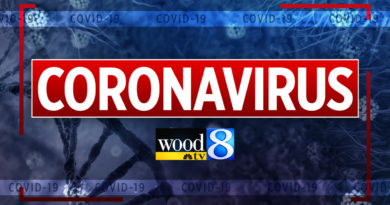To Start Rebuilding The COVID-19 Safety Net, Amend The 340B Drug Discount Program
Financing COVID-19 Care For Uninsured And Underinsured Populations
As the COVID-19 pandemic began sweeping through the United States in March 2020, the federal government recognized and acted on the urgent need to provide financial support for uninsured/underinsured individuals. Over the past two and a half years, $178 billion has been appropriated to the Provider Relief Fund, which included allocations for COVID-19 vaccination, testing, and treatment with no cost sharing for patients. From this fund emerged two programs to address the needs of uninsured/underinsured populations: the Health Resources and Services Administration’s (HRSA) Uninsured Program to cover the cost of COVID-19 testing, treatment, and vaccination for uninsured individuals; and the COVID-19 Coverage Assistance Fund to cover vaccine administration costs for individuals whose insurance plans required cost sharing (underinsured). Additionally, the federal government directly purchased ambulatory therapeutics to provide these treatments to patients free of charge. Despite these investments, disparities continue in access to COVID-19 testing and treatment, morbidity, and mortality according to socioeconomic status, race/ethnicity, and geography. In early 2022, both the Uninsured Program and the Coverage Assistance Fund were abruptly halted due to lack of sufficient funds with little prospect for renewal.
Despite the recent declaration by President Joe Biden, the COVID-19 pandemic is far from over. A critical need for continued access to vaccination, testing, and effective COVID-19 treatment remains as infections persist. Communities that continue to be most affected by COVID-19 (such as communities of color, low-income, and high-density or multigenerational households) rely on the COVID-19 safety-net system that is being rapidly dismantled. Although it has faced criticism due to lack of transparency and concern over use of profits, the 340B Drug Discount Program is one mechanism for eligible entities serving high proportions of low-income patients to purchase ambulatory drugs at significant discounts. Considering the ongoing public health emergency, we call on HRSA to revise the 340B policy to allow purchase of therapeutics with emergency use authorization (EUA) for the treatment of COVID-19.
Monoclonal Antibodies For COVID-19
Monoclonal antibodies (mAbs) were the first ambulatory therapeutics for COVID-19 to become available beginning in November 2020, and pre-date oral antiviral agents (Pfizer’s Paxlovid [nirmatrelvir and ritonavir] and Merck/Ridgeback Pharmaceuticals’ Lagevrio [molnupiravir]) by more than a year. Ambulatory treatments are effective in preventing COVID-19 disease progression to hospitalization and death. Compared to ambulatory oral antivirals, mAbs have fewer contraindications, fewer drug-drug interactions, and a longer treatment window from symptom onset (seven or ten days versus five days). Although use of mAbs varies due to logistics of intravenous/subcutaneous administration and repeated changes in specific product availability due to effectiveness against changing dominant COVID-19 variants, mAbs remain a critical option for treatment. Indeed, for some patients who are at high risk of advancing to severe COVID-19, mAbs are the only outpatient treatment for which they qualify.
On August 11, 2022, it was announced that Eli Lilly’s mAb bebtelovimab, effective against the Omicron variant, would transition from a federally purchased and distributed system to direct order and purchase on the commercial pharmaceutical marketplace. Bebtelovimab, like all COVID-19 ambulatory therapeutics, is used under the Food and Drug Administration’s (FDA’s) EUA—a special status that facilitates rapid adoption of novel therapeutics in emergency situations. Providers must now directly purchase bebtelovimab from Eli Lilly for $2,100 per treatment, compared to the previous federal system that provided the agent at no cost. On September 23, 2022, the Department of Health and Human Services (HHS) announced that facilities administering previously purchased (from the commercial marketplace) bebtelovimab to uninsured/underinsured patients could receive free replacement doses. Yet, the logistics of obtaining replacements for previously administered doses and the financial risk for facilities participating in this reactive, not proactive, new federal program are unclear. At the current pace of use, the program is expected to exhaust its 60,000 bebtelovimab doses by September 2023. Similarly, without additional investment, federal supplies of Paxlovid and Lagevrio will likely be depleted by mid-2023 and will then transition to the commercial market with no identified plans for ongoing uninsured/underinsured treatment. Thus, as the unraveling of the COVID-19 safety net continues, uninsured/underinsured patients may be priced out of ambulatory treatments when they become infected with COVID-19 after the free supplies are exhausted.
340B Program Overview And Link To COVID-19 Treatments
Without the financial protection from the Uninsured Fund or the COVID-19 Coverage Assistance Fund, hospitals and clinics that care for disproportionately high shares of uninsured/underinsured patients, such as federally qualified health centers (FQHCs) and public hospitals, may not have the financial capacity to purchase high-cost COVID-19 treatments on the commercial marketplace.
Since 1992, the HRSA-administered 340B Drug Discount Program has allowed eligible providers to purchase ambulatory drugs at an estimated 35 percent discount. The intention of the program is to offer financial relief for entities serving high proportions of uninsured/underinsured patients. Participation has accelerated in recent years, and consequently, the program has come under scrutiny with mounting evidence that participating hospitals have not used program savings to expand services to uninsured/underinsured populations. Unlike the entities that were early enrollees into the 340B program, newer enrollees have tended to be located in higher-income communities. Despite these concerns, FQHCs and public hospitals, that do serve a disproportionate number of vulnerable populations, rely on the 340B program to purchase desperately needed outpatient drugs.
As ambulatory COVID-19 treatments are increasingly moved to the commercial marketplace, purchasing these high-cost treatments through the 340B program would reduce drug acquisition costs for participating entities, enabling them to continue providing care to their patients. However, for bebtelovimab (and eventually Paxlovid and Lagevrio), EUA status precludes it from purchase using 340B discounts, which leaves safety-net facilities and their patients with few options. Many safety-net entities were already in dire financial circumstances pre-pandemic. It is unlikely these sites will be able to purchase bebtelovimab at full price, when the above mentioned COVID-19 relief programs end. Even though the 340B program would not fully remove drug acquisition costs, the program has the potential to provide some financial relief for providers.
Future Of COVID-19 Ambulatory Treatment And Call To Action
COVID-19 is an ongoing public health emergency, and we call on the HRSA to revise the 340B policy to allow discounted purchase of EUA therapeutics. An expansion of this type would represent a departure from prior 340B program modifications, which have favored the addition of new entities or increased oversight. Nonetheless, allowing purchase of EUA drugs for COVID-19 under 340B represents a return to the program’s original intent of offering financial relief to entities serving the highest-need patients. This change would allow safety-net entities to more easily purchase and administer bebtelovimab through an already established process, once the new HHS program expires. The change would also set a precedent and would permit the uninterrupted purchase and delivery of Paxlovid and Lagevrio to high-need populations once those treatments transition to the commercial marketplace. Emergence of new variants throughout the pandemic has led to the continual authorization and de-authorization of mAb agents. The likelihood of new COVID-19 variants means that current therapeutics may become obsolete before they ever received full FDA approval. There is an urgent and present need to continue offering COVID-19 treatment to high-risk patients, uninterrupted. Uninsured and underinsured populations should not have to wait for full FDA approval to access effective treatment, nor should safety-net institutions have to bear the financial burden of full-cost advanced purchasing.
Amending the 340B drug discount program to include EUA COVID-19 therapeutics is the first step to rebuilding the COVID-19 safety net. Ensuring access to bebtelovimab, Paxlovid, Lagevrio, and future therapeutics should remain a high priority, as infections persist. The COVID-19 safety net was rapidly woven in the wake of a frightening worldwide pandemic. As time has passed, this safety net is unraveling. It is time to start putting it back together for an enduring effect.





